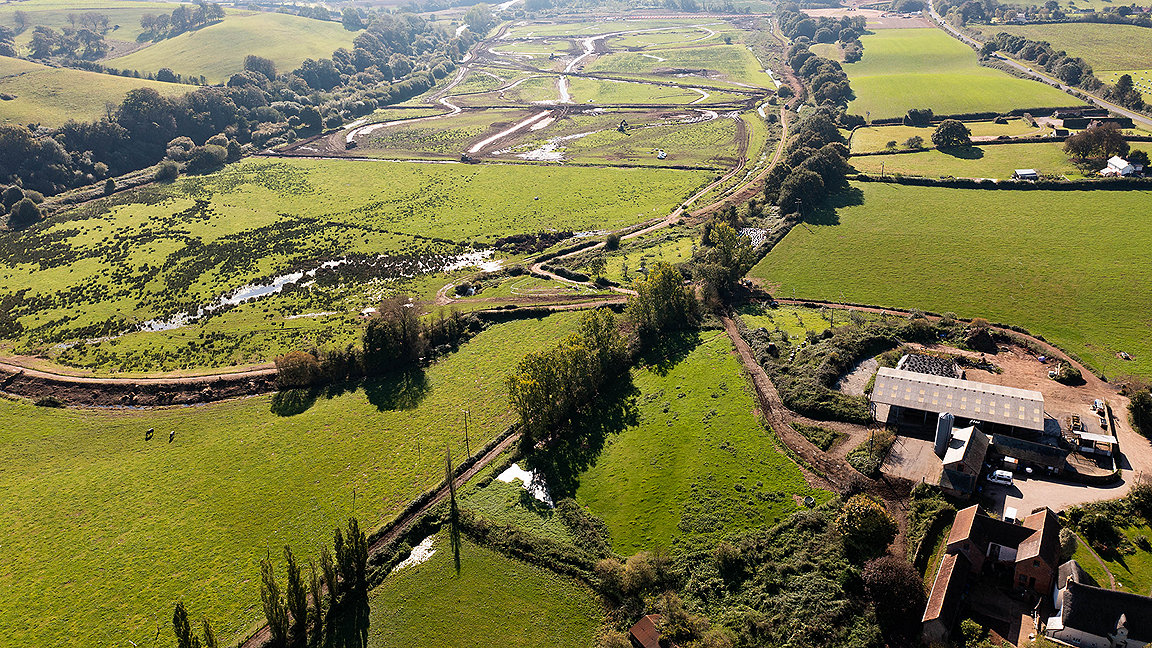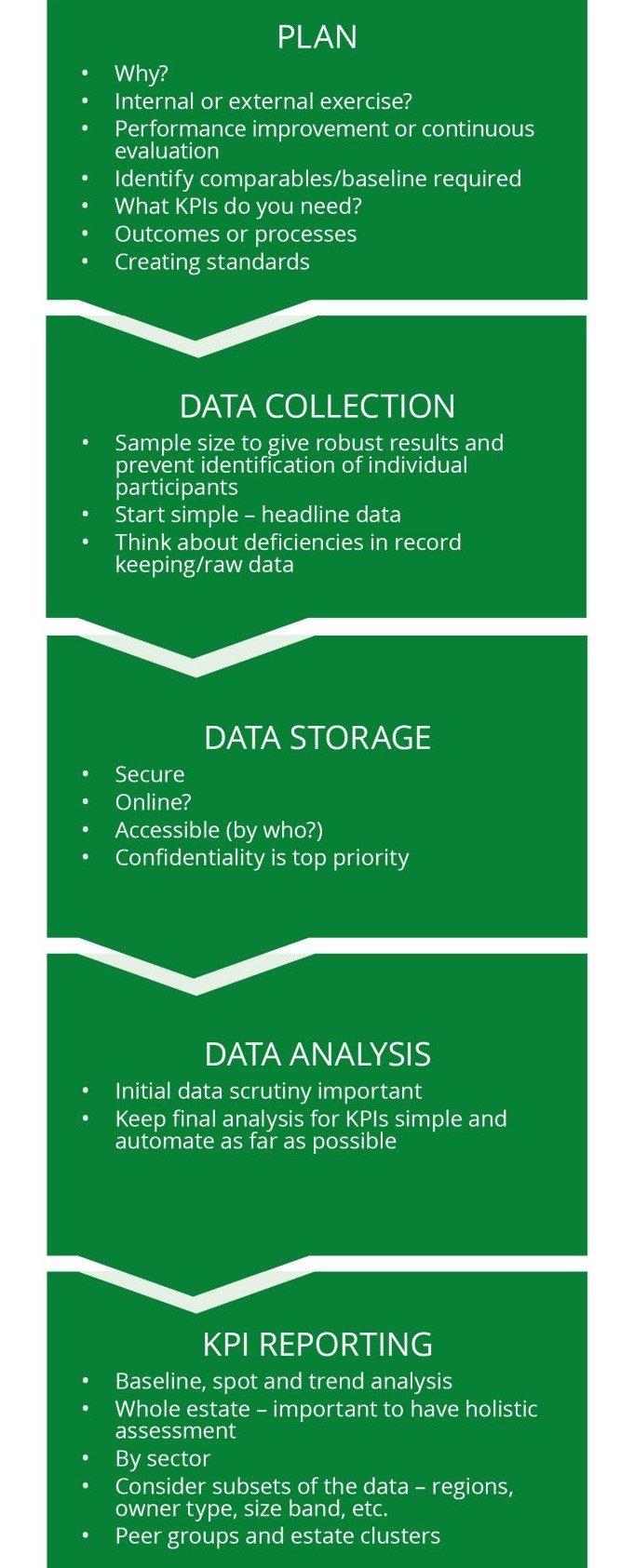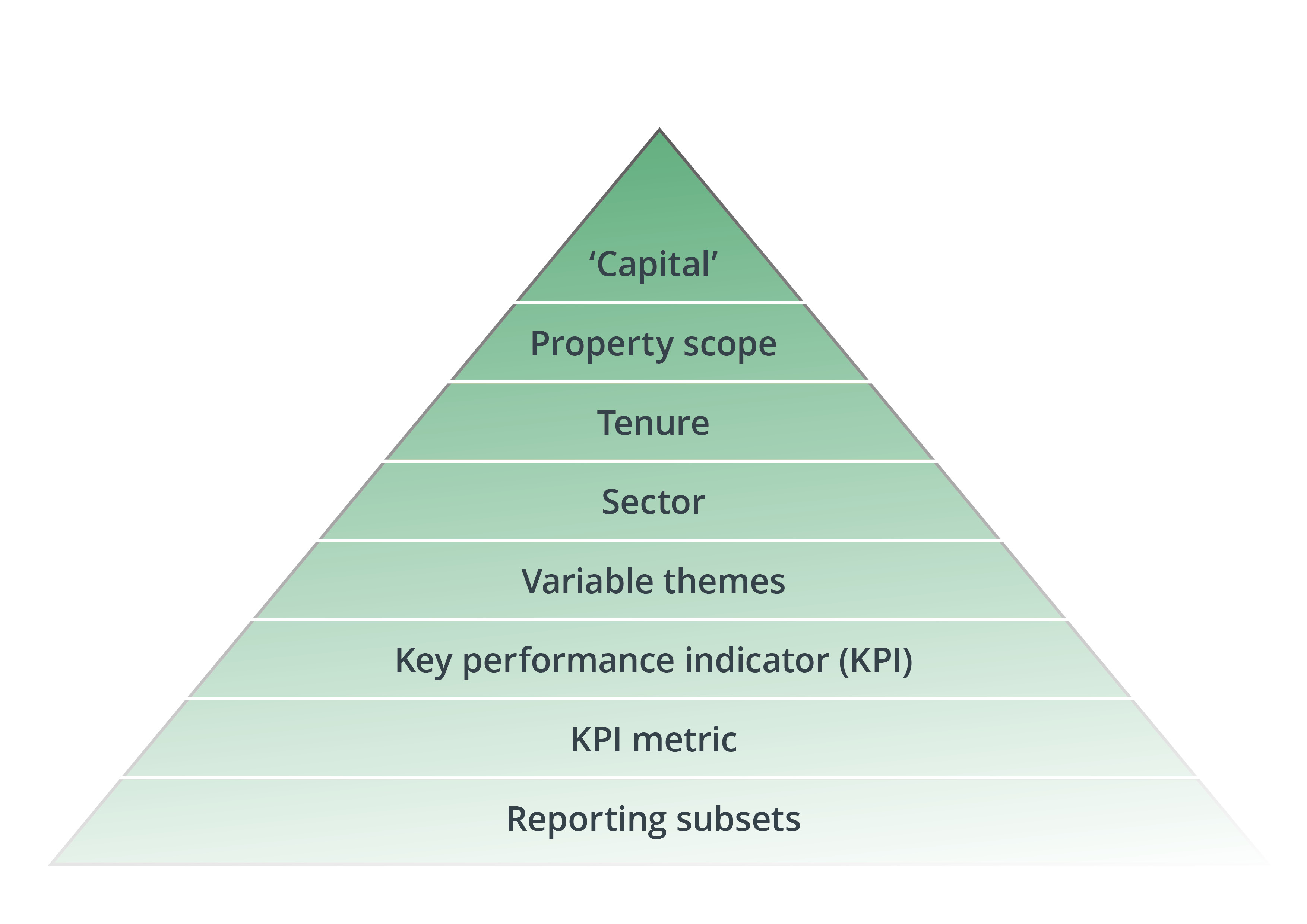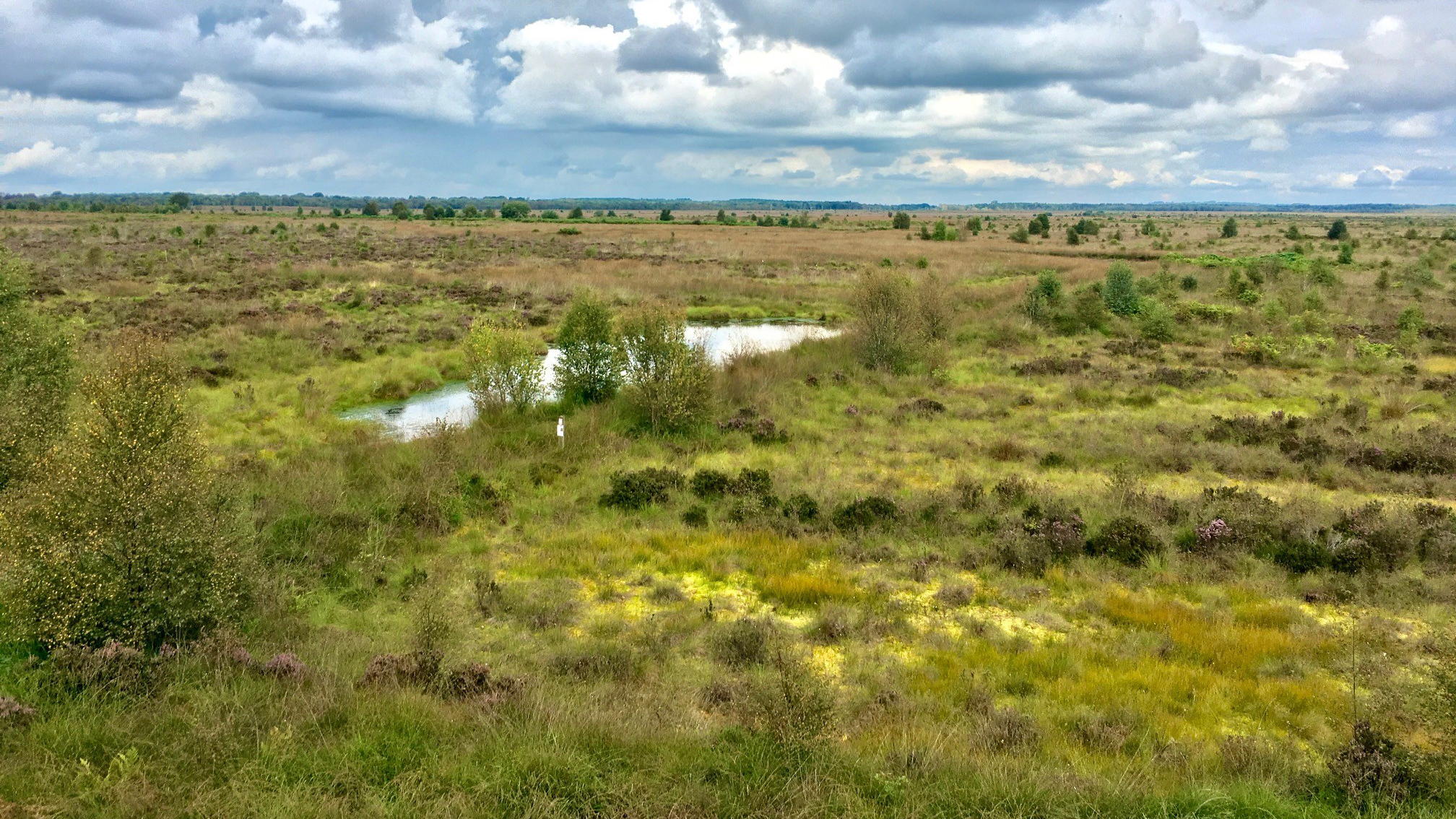
Construction of creeks and a new access road. Part of the 155ha Lower Otter Valley Climate Adaption scheme in East Devon © Jake Newman/KOR Communications
What is benchmarking? One definition is the process of comparing an organisation or business and its operations and processes against other organisations in the same sector or in the broader marketplace.
Ed Barnston of Barnston Estate defines it as: 'the collation, comparison and analysis of data, normally quantitative rather than qualitative, across time periods, to assist with evidence-based decision making.'
Challenging the performance of a business using benchmarking should be imperative in any economic climate. However, with so much change in the sector, it is even more critical.
Indeed, the changes impact the resilience of the traditional focus of rural estates and expose them to a much wider range of stakeholders who have an interest in what is happening on the land.
This is already becoming apparent through:
-
planning objections
-
feedback for rural development and diversification
-
active community groups
-
the environment being more closely examined at a landscape scale.
All of which will result in increased collaboration across rural estates and rural land-based businesses.
Applied data through benchmarking will be important for communicating and demonstrating accountability to external stakeholders, for example local communities, and providing an evidence base for policy changes that might include pressures on land ownership. On the latter, there is already some pressure, notably in Scotland, to demonstrate optimum land use to justify ownership and management decisions.
As the drive towards net zero continues, there are likely to be potential conflicts for land use that will impact on rural estates and rural land-based businesses. One example might be whether land is used for tree planting or food production.
Benchmarking is essential both for the understanding of current business performance and its ability to help drive businesses forward. To be successful, managers of rural estates and land-based businesses and their advisers must recognise this.
Our research for the RICS benchmarking insight paper shows there is a wide range of views and expertise on the need for, the content of and the depth of benchmarking required in the rural sector. There are currently many different approaches to benchmarking and a lack of coordination and agreed standards for the sector and RICS members.
It is difficult to give a comprehensive inventory of existing benchmarking tools and surveys because of the wide scope of the various surveys and low participation levels. The economics of administering benchmarking surveys also means many are below the radar.
However, section 6 of the insight paper attempts to outline the primary surveys and tools currently available to land managers and advisers for UK rural property, UK property and international rural property. All of this shows the clear need for consistency in benchmarking performance of rural estates and rural land-based businesses.
The case for KPIs
The diverse range of assets and income streams coupled with diverse ownership motives on rural estates and rural land-based businesses make this a difficult problem to solve. However, this diversity strengthens the need for key performance indicators (KPIs) that are sector-focused but which provide a holistic view of the health of the business.
This mix of sector KPIs with a holistic assessment is especially critical when developing future strategies, especially for the efficient use of funds. It is particularly relevant for contributing to the typical rural estates' reporting structure, which includes family, trustees, shareholders, staff and their responsibilities.
There is also a need for a range of KPIs that enable specific parts of the business to be benchmarked in isolation. A fully diversified rural estate encompasses so much that any rural land-based business should be able to select the relevant KPIs for a rural estate to do its own specific benchmarking.
A holistic assessment of the business and establishing a performance baseline early on is the key to success. This sets out the foundation for strategic business plans and allows future change to be effectively measured and monitored against the plan.
It is easy to complicate benchmarking and lose sight of the key objectives for carrying out the exercise. Therefore, it is important to start with a simple framework of KPIs that:
-
are relevant
-
have readily available data
-
are straightforward to calculate
-
provide a holistic assessment of the business.
The five key stages in establishing a successful benchmarking project are described in Figure 1.
Choosing KPIs for rural business
When considering which KPIs might be suitable for improving performance on rural estates and land-based businesses, the list soon becomes long and complex.
The selection of KPIs for an individual business will be determined by the objectives for holding or owning the estate, which may include:
-
investment performance
-
income generation
-
environmental stewardship
-
social stewardship
-
strategic development
-
long-term hold for future generations.
The framework in Figure 2 aims to guide discussions on KPIs for the business. Further detail of the KPI themes of each of the hierarchy levels in the pyramid is given in Table 3, p. 32 of the insight paper.


Keeping it simple is a challenge but this must be a key consideration as time is money to land managers and advisers.
Data is king for rural business
Change is inevitable, and the pace of this change is likely to be rapid relative to the past. There is likely to be a significant shift from the current view of assets and tenure. This will be especially true for land use and its impact on the natural environment.
The efficient use of data will be key to managing business in all industries. Data on rural estates and land-based businesses is already being collected across many applications and platforms. The challenge will be to integrate and analyse this data to produce metrics that are clear, relevant and available to rural estates and land-based businesses to create a baseline and to provide information for benchmarking performance internally and externally.
Benchmarking should not be regarded as a quick fix, and the information must be acted on to improve performance. The objective is to ensure that estate and rural land-based businesses can act and react to changes in a timely and efficient way to ensure a thriving and sustainable rural economy.
RICS benchmarking insight paper
RICS is delighted to publish this insight paper on the key subject of benchmarking at this critical juncture for rural land-based businesses. RICS is interested to find out what the sector wants to see covered in future standards. We welcome your feedback. Please email RICS land specialist Fiona Mannix with your views.

